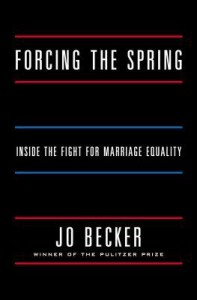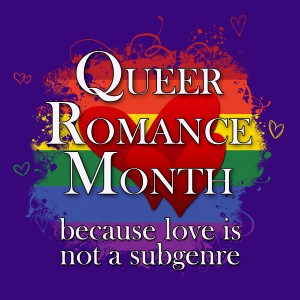
I do three different “best of the year” lists in different contexts. This is my personal list, but…I also do a Best Ebook Romances of the year for Library Journal, and I’m one of the judges for the SFR Galaxy Awards, which is effectively a best SFR of the year list.
So there are repeats. After all, if it was one of the best in one context, there’s an awfully good chance it will be one of the best in another if applicable. Even so, when I looked at my A+, A and A- reviews for the year, I had too many choices.
That being said, I have wondered whether I could (or should) keep going with the theme of “besting” the same number of books as the year. So far, it is working all too well.
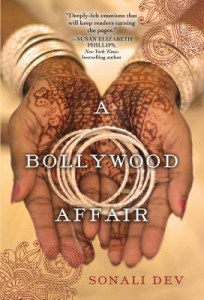 In the romance category, I have three that stood out from the other terrific books I read this year. A Bollywood Affair by Sonali Dev was an absolute standout. (It’s also on my LJ list). Dev’s book is a slow burning romance and an introduction or exploration into Indian-American and Indian culture. Her heroine is a good girl with a little bit of defiance, and her hero is a bad boy who discovers how much fun it can be to be good.
In the romance category, I have three that stood out from the other terrific books I read this year. A Bollywood Affair by Sonali Dev was an absolute standout. (It’s also on my LJ list). Dev’s book is a slow burning romance and an introduction or exploration into Indian-American and Indian culture. Her heroine is a good girl with a little bit of defiance, and her hero is a bad boy who discovers how much fun it can be to be good.
Jeffe Kennedy’s Mark of the Tala is a great fantasy romance and the first book in her Twelve Kingdoms series. In this one, what I loved was the number of different ways that the road to hell gets paved. Her hero and heroine want to do the right thing for both their peoples, and are lucky enough to fall in love in the process. But this is a story about the fight for the soul of two kingdoms, and a lot of men do evil in the name of either good or power. This one goes surprisingly well, if sadly, with Maleficent.
Robin York, better known as Ruthie Knox, told one of the best New Adult stories I have read so far in the genre in Deeper and Harder, the story of Caroline and West. These are real people facing real problems, including a “wrong side of the tracks” type of love story. They overcome a lot of obstacles, with a lot of love, but also quite a bit of heart-rending pain.
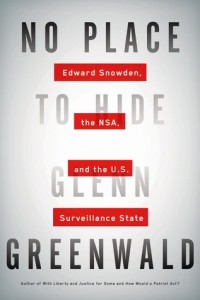 I read a bit more nonfiction than usual this year, and two titles have stuck in my head long after I finished. Partially for the topics they cover, and also significantly for the marvelous writing style. No Place to Hide by Glenn Greenwald reads like a spy thriller, but it is a cautionary tale about the case of Edward Snowden, the NSA papers he released, and the subsequent persecution of the reporter who covered the story. It will make you look at everything you read that purports to be true with a much more critical eye.
I read a bit more nonfiction than usual this year, and two titles have stuck in my head long after I finished. Partially for the topics they cover, and also significantly for the marvelous writing style. No Place to Hide by Glenn Greenwald reads like a spy thriller, but it is a cautionary tale about the case of Edward Snowden, the NSA papers he released, and the subsequent persecution of the reporter who covered the story. It will make you look at everything you read that purports to be true with a much more critical eye.
Forcing the Spring by Jo Becker reads like a legal thriller, but it tells the story of the fight for marriage equality using the lens of the case against Prop 8 in California. Becker was embedded with the legal team during the five years that this case wound its way to the Supreme Court, and her “you are there” style of reporting will keep you on the edge of your seat.
 Two books don’t fit into categories at all well. Ryder by Nick Pengelley is action/adventure, with a heroine who is a combination of Indiana Jones, Lara Croft and Robert Langdon from The DaVinci Code. Ayesha Ryder kicks ass, takes names and discovers secrets that weren’t meant to be revealed in a delightful thriller.
Two books don’t fit into categories at all well. Ryder by Nick Pengelley is action/adventure, with a heroine who is a combination of Indiana Jones, Lara Croft and Robert Langdon from The DaVinci Code. Ayesha Ryder kicks ass, takes names and discovers secrets that weren’t meant to be revealed in a delightful thriller.
The Bees by Laline Paull feels like a bit of an allegory – it is social commentary about human behavior disguised as bee behavior. But it is also a story about listening to your own inner voice and absolutely NOT blooming where you are planted. You will find yourself rooting for the bee, and laughing at some of her observations that hit close to home about both bees and us.
The urban fantasy series Mindspace Investigations by Alex Hughes continues to wrap me in its web. This year’s entries in the series are Marked and Vacant, and the one word titles represent something in the life of the series protagonist, Adam Ward. Adam is a recovering drug addict, a police consultant, and a telepath. He’s also in love with his equally damaged but otherwise normal police partner. The layers created in this post-apocalyptic but still mostly functioning version of suburban Atlanta are fascinating. It is just close enough to now to recognize what is still going right, and what went wrong.
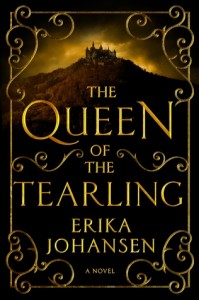 In epic fantasy, my favorite this year was The Queen of the Tearling by Erika Johansen. This is in the classic mold of the hero who is raised in obscurity to become the ruler, but the hero is a heroine. This one has the feeling of the King Arthur story, but with a Queen instead. So Queen Kelsea is a fish very much out of water who has to learn fast to save her kingdom. Unlike so many retellings of the Arthur story, Kelsea operates in shades of grey; good choices can have every bit as costly an outcome as bad choices, sometimes more costly. She is learning by the seat of her pants while attempting to preserve her kingdom and fighting with everyone on all sides. A marvelous coming-of-age epic fantasy on a grand scale.
In epic fantasy, my favorite this year was The Queen of the Tearling by Erika Johansen. This is in the classic mold of the hero who is raised in obscurity to become the ruler, but the hero is a heroine. This one has the feeling of the King Arthur story, but with a Queen instead. So Queen Kelsea is a fish very much out of water who has to learn fast to save her kingdom. Unlike so many retellings of the Arthur story, Kelsea operates in shades of grey; good choices can have every bit as costly an outcome as bad choices, sometimes more costly. She is learning by the seat of her pants while attempting to preserve her kingdom and fighting with everyone on all sides. A marvelous coming-of-age epic fantasy on a grand scale.
But this year, so many of my memorable reads were in my first love, science fiction.
Two books that I am not going to say a lot about because it’s all been said. These were bestsellers and were covered everywhere.
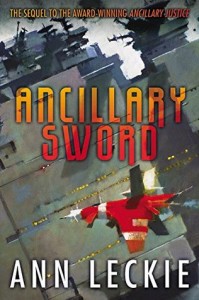 John Scalzi’s Lock In is a murder mystery wrapped in a near-future science fiction setting that, as is usual for Scalzi, has as much to say about our current society as it does about the future in which the book is set. This one works on multiple levels, and has a surprising twist that will tell you a bit about yourself as well. Great fun and an awesome read.
John Scalzi’s Lock In is a murder mystery wrapped in a near-future science fiction setting that, as is usual for Scalzi, has as much to say about our current society as it does about the future in which the book is set. This one works on multiple levels, and has a surprising twist that will tell you a bit about yourself as well. Great fun and an awesome read.
Ancillary Sword by Ann Leckie is a worthy sequel to the “sweeping all the awards winner” Ancillary Justice. This series is fantastic space opera with a unique point-of-view character from a galaxy-spanning empire with a fascinating culture and a very different way of managing its far-flung holdings. Whatever you might have heard about how good this series is – it’s even better than that.
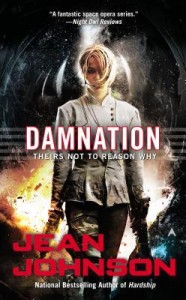 Jean Johnson’s Theirs Not to Reason Why series concluded this year with two books, Hardship and Damnation. Johnson’s series, like Leckie’s, is epic space opera, but Johnson is firmly in the military SF camp with this series. Her heroine rises through the ranks of the Space Force as the story is told, while she fights an interstellar war, first as a grunt, but eventually as Commander of the Armies. The thing that makes this series unique is that her heroine, Ia, is a precognitive who knows what has to happen, but still has to move heaven, earth, the central command, and everyone she ever meets into the right place at the right time to save the universe in a future that she will never live to see. Awesome from beginning to end.
Jean Johnson’s Theirs Not to Reason Why series concluded this year with two books, Hardship and Damnation. Johnson’s series, like Leckie’s, is epic space opera, but Johnson is firmly in the military SF camp with this series. Her heroine rises through the ranks of the Space Force as the story is told, while she fights an interstellar war, first as a grunt, but eventually as Commander of the Armies. The thing that makes this series unique is that her heroine, Ia, is a precognitive who knows what has to happen, but still has to move heaven, earth, the central command, and everyone she ever meets into the right place at the right time to save the universe in a future that she will never live to see. Awesome from beginning to end.
Soulminder by Timothy Zahn was a complete surprise. Zahn is probably best known for his Star Wars fiction, but this is something completely different. As with Scalzi’s Lock In, Soulminder is SF of the laboratory type, where it is a scientific discovery that fuels the story arc. Also as with Lock In, there is a definitely plot thread about the way that humans will take something potentially good and pave the road to hell with it. (Soulminder was published before Lock In, so any resemblance is unintentional). For hard science SF, Soulminder has a surprising amount of story concerned with keeping one’s soul. It is a tale that embodies the principle “for evil to flourish, it is only necessary that good men do nothing.” It’s also about what happens when those good men stop doing nothing.
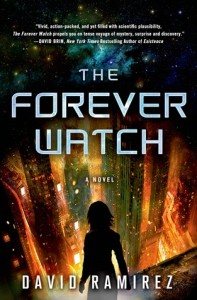 Last but not least, The Forever Watch by David Ramirez. If you threw Gorky Park, Blade Runner, one of Robin Cook’s medical thrillers and Anne McCaffrey’s The Ship Who Sang into a blender, along with spice from The Matrix and Madeline Ashby’s Suited, you might come up with a story that has some resemblance to The Forever Watch, but it wouldn’t be nearly as good. The Forever Watch is epic SF of the generation ship type, and it was one of those books that I shoved at people because I was so captivated. And it has one of those ending plot-twists that makes you re-think the entire story.
Last but not least, The Forever Watch by David Ramirez. If you threw Gorky Park, Blade Runner, one of Robin Cook’s medical thrillers and Anne McCaffrey’s The Ship Who Sang into a blender, along with spice from The Matrix and Madeline Ashby’s Suited, you might come up with a story that has some resemblance to The Forever Watch, but it wouldn’t be nearly as good. The Forever Watch is epic SF of the generation ship type, and it was one of those books that I shoved at people because I was so captivated. And it has one of those ending plot-twists that makes you re-think the entire story.
And that’s my top 14 for the year. 2014 was a wild ride, and I can’t wait to see what 2015 has in store! What were your favorites of 2014? Do share! We all need more awesome books to read!

